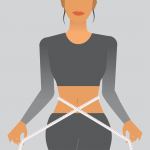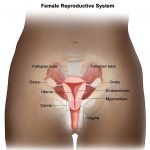What is postpartum depression?
Postpartum depression (often abbreviated as PPD) is a form of depression that occurs after childbirth. Depression may begin during pregnancy, but to be classified as postpartum depression, it must continue after childbirth.
Postpartum depression is very common, and it is a known fact that 10-15 out of every 100 women who give birth experience it. Since many women do not share their feelings and thoughts about this issue with others, the actual number may be even higher.
How is postpartum depression different from “normal” depression?
The symptoms of DSD are the same as those of any other depression. These include feeling down and a general lack of interest in daily activities. The only difference is that these symptoms appear within the first three months after giving birth. Sometimes, postpartum depression can develop later, but if symptoms appear a year or more after childbirth, it is unlikely to be postpartum depression.
Since DSD is very similar to “normal” depression, you may find our booklets “Depression: A Self-Help Guide” and “Depression: A Fact Sheet” useful. Ask your family doctor or therapist for these booklets.
The good news is that, like all types of depression, postpartum depression responds well to treatment, and most women recover completely.
What other postpartum problems can women experience?
There are two emotional states that women may experience after giving birth that can cause distress.
Baby stress
This is a very common condition called “baby stress.” It is a mild form of depression and affects eight out of ten women after childbirth. When mothers experience “baby stress,” they become very emotional and cry for no reason. New mothers also feel anxious, tense, and tired, and have difficulty sleeping.
Doctors believe that sudden changes in hormone levels during childbirth cause “baby blues,” but there may be other causes, such as the trauma of childbirth and the challenges of having a new baby. The postpartum period is a time when you need rest to recover, but you don’t have time to rest!
This stress lasts for a couple of days and disappears as quickly as it came. If it does not continue for a long time or get worse (in which case it is called postpartum depression), there is no need to worry.
Postpartum Psychosis
The second problem women face after childbirth is much less common. It is called postpartum or postpartum psychosis. It is a more serious condition than postpartum depression and occurs in one in every thousand new mothers. The problems usually appear suddenly within two weeks after birth in the form of serious mood and behavioral disorders. Women who experience postpartum psychosis become very tense, confused, and generally have very disturbing beliefs about themselves and/or their babies.
This booklet is not intended for women experiencing these types of problems. These women should see a professional psychologist and seek immediate help from their doctor. Treatment is generally medication and requires a short stay in a mother and baby unit. Remember, although postpartum psychosis can be frightening for a new mother and her family, treatment is very effective and most patients recover completely.
What are the symptoms of postpartum depression?
Women have reported many symptoms, most of which are listed below. These symptoms may seem overwhelming at a time when a new baby requires a lot of care and attention.
The following are some of the symptoms that may appear when you are experiencing postpartum depression.
Feelings and thoughts
- Feeling sad, unhappy, helpless
- Crying excessively or being unable to cry
- Feeling worthless
- Frequent mood swings
- Feeling guilty
- Loss of interest
- Decreased happiness/enjoyment
- Feeling tense or panicky and anxious
- Feeling irritable and angry
- Inability to feel the emotions you want to feel toward your baby
Physical symptoms
- Decreased energy and excessive fatigue
- Sleep disturbances
- General slowing down or
- Restlessness, tension, and inability to relax
- Loss of interest in sex
- Changes in appetite – eating too much or too little
Thoughts – When people become depressed, they become experts at negative thinking and feeling sad.
- Self-criticism – “I’m a terrible mother.” “I look awful.” “I can’t understand this book, I must be stupid.”
- Worrying – “The baby isn’t getting enough to eat.”
- Jumping to conclusions – “Everything is my fault.”
- Expecting the worst – “Everything will go wrong – nothing will get better, everything will always go wrong.”
- Feeling hopeless – “There is no end to this. Sometimes I think things would be better without me.”
- Thoughts about others – “Everyone else is succeeding. No one cares about me.”
- And the world – “What a terrible place to raise a child…”
Thinking – Depression affects thinking in other ways as well.
- Difficulty concentrating
- Inability to make decisions
- Confused, unclear thoughts
Behavior
- Withdrawal from people and staying indoors
- Not doing things you used to enjoy
- Not doing daily tasks—or doing them excessively
- Procrastination
- Arguing, shouting, losing control
If you checked several of the boxes above and have been feeling this way for the past two weeks or longer, you may be experiencing some form of depression. If this began within a few weeks or months after giving birth, you are likely experiencing postpartum depression.









